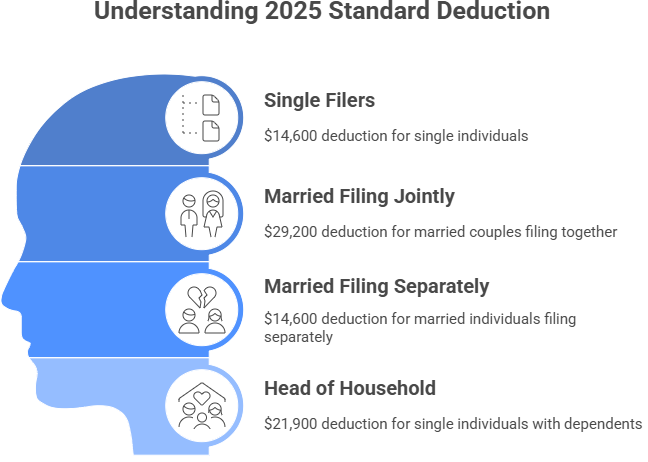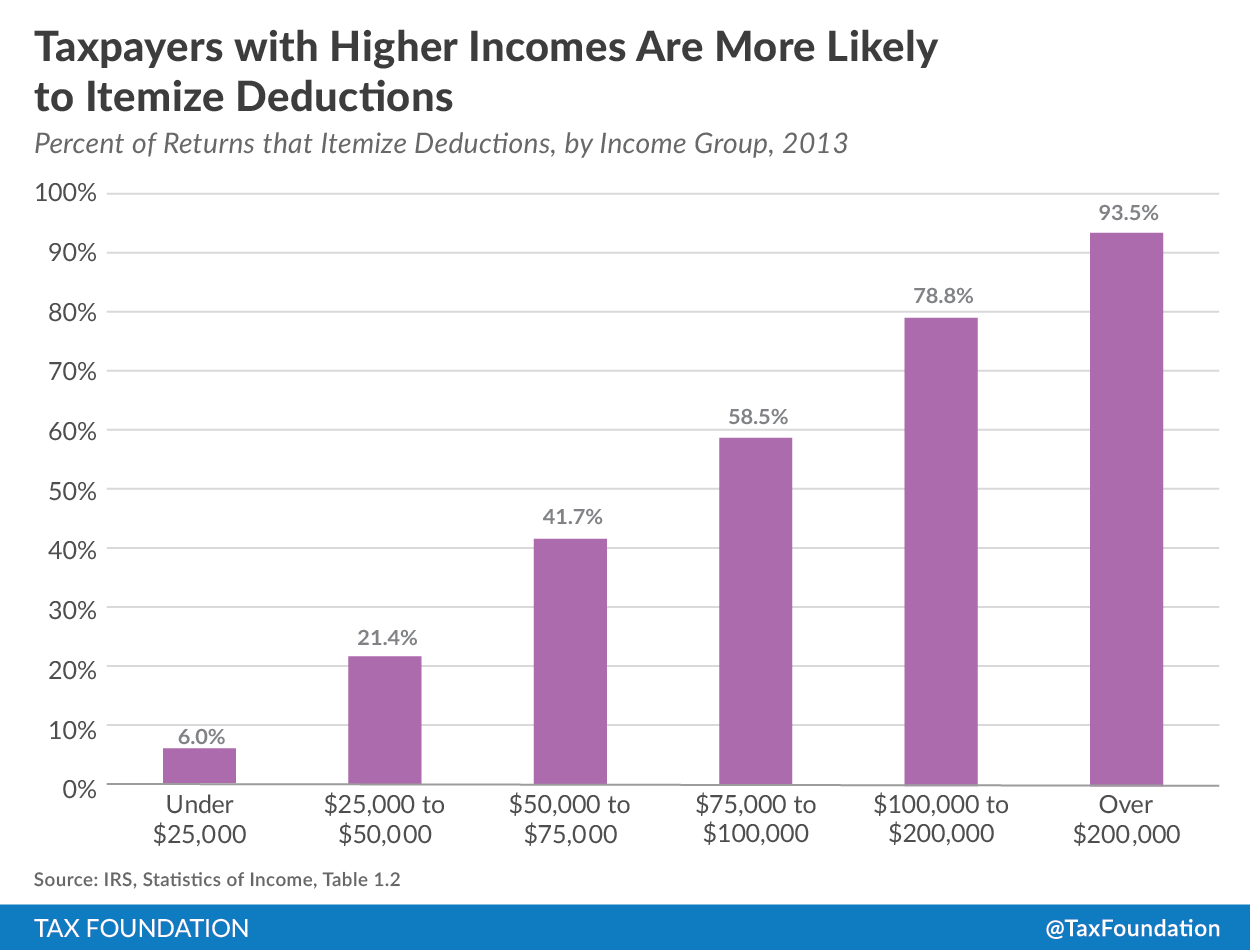How the FEIE Standard Deduction influences eligibility for other tax credits
Wiki Article
Understanding the Foreign Earned Earnings Exclusion and Its Effect On Your Typical Reduction
The Foreign Earned Revenue Exclusion (FEIE) offers significant benefits for expatriates, allowing them to exclude a section of their foreign-earned earnings from united state tax. Claiming the FEIE can complicate one's tax obligation scenario, especially concerning the common reduction. Comprehending this interaction is necessary for individuals living abroad. As migrants browse these intricacies, they must think about exactly how their choices impact their overall tax obligation responsibility. What strategies can they utilize to enhance their financial results?What Is the Foreign Earned Revenue Exclusion (FEIE)?
The Foreign Earned Income Exclusion (FEIE) acts as a crucial tax advantage for U.S. residents and resident aliens functioning abroad. This arrangement enables eligible individuals to omit a substantial section of their foreign-earned income from U.S. tax, efficiently minimizing their total tax worry. The FEIE intends to alleviate the financial pressure on expatriates and motivates Americans to seek job opportunity in international markets. The exemption relates to wages, salaries, and professional fees gained while living in an international country. The optimal exclusion amount is adjusted every year for inflation, guaranteeing that it continues to be relevant to present economic conditions. By using the FEIE, expatriates can keep more of their revenue, cultivating economic security while living overseas. Overall, the FEIE plays a crucial duty fit the economic landscape for Americans abroad, assisting in a smoother shift to international job atmospheres and advertising economic engagement on an international scale.Eligibility Needs for the FEIE
Qualification for the Foreign Earned Revenue Exemption (FEIE) rests upon conference details requirements established by the Irs (INTERNAL REVENUE SERVICE) Primarily, people should be U.S. residents or resident aliens who earn earnings while residing in a foreign nation. To certify, they have to satisfy a couple of main examinations: the Physical Visibility Test or the Authentic Residence Test.The Physical Presence Test requires individuals to be literally existing in an international nation for at least 330 complete days within a 12-month duration - FEIE Standard Deduction. Conversely, the Authentic Home Examination demands that people establish residency in a foreign nation for a continuous period that includes a whole tax obligation year
Additionally, the earnings has to be originated from individual services executed in the foreign nation. Fulfilling these needs allows taxpayers to leave out a significant section of their foreign-earned income from united state taxation, thus lowering their general tax obligation liability.
How to Claim the FEIE

To start the process, individuals need to gather papers that confirm their international incomes, such as pay stubs, income tax return from international countries, and any appropriate employment agreements. It is crucial to ensure all income asserted under the FEIE is made from foreign sources and satisfies the required thresholds.
Furthermore, taxpayers have to consider submitting due dates and any type of possible extensions. Declaring the FEIE appropriately not just aids in lessening tax obligation obligation but likewise ensures conformity with IRS guidelines. Appropriate documents and adherence to standards are vital for an effective case of the Foreign Earned Revenue Exclusion.
The Interaction In Between FEIE and Basic Deduction
The interaction between the Foreign Earned Income Exclusion (FEIE) and the typical deduction is an important aspect of tax planning for migrants. Recognizing the basic concepts of FEIE, along with the constraints of the typical deduction, can significantly influence tax obligation declaring strategies. This section will certainly check out these aspects and their ramifications for taxpayers living abroad.FEIE Essentials Discussed
While lots of migrants seek to lower their tax obligation worry, understanding the interaction between the Foreign Earned Revenue Exclusion (FEIE) and the standard reduction is necessary. The FEIE allows united state people and resident aliens living abroad to exclude a specific quantity of foreign gained revenue from U.S. tax. This exclusion can considerably decrease gross income, possibly impacting qualification for various other deductions, such as the standard reduction. Extremely, people that declare the FEIE can not likewise take the typical deduction versus the excluded income. Because of this, expatriates need to carefully evaluate their total revenue browse this site and deductions to maximize their tax obligation situation. Understanding of these communications can bring about more educated economic choices and much better tax obligation strategies for migrants guiding through their one-of-a-kind situations.Criterion Reduction Limitations
Comprehending the restrictions of the standard deduction in regard to the Foreign Earned Earnings Exemption (FEIE) is important for expatriates navigating their tax obligation responsibilities. While the FEIE enables qualifying individuals to omit a specific quantity of foreign-earned income from united state taxes, it can influence the basic reduction they are eligible to insurance claim. Especially, taxpayers that declare the FEIE can not likewise claim the basic reduction on that excluded income. Additionally, if an expatriate's complete earnings drops below the basic reduction threshold, they might not profit from it in any way. This interaction requires mindful preparation to maximize tax obligation advantages, as underutilizing the conventional reduction can lead to higher gross income and increased tax liability. Comprehending these restrictions is critical for effective tax approach.Tax Obligation Declaring Implications
Navigating the tax obligation declaring effects of the Foreign Earned Revenue Exemption (FEIE) requires mindful factor to consider of just how it interacts with the basic deduction. Taxpayers making use of the FEIE can omit a significant section of their foreign-earned income, but this exclusion impacts their eligibility for the standard reduction. Especially, if an individual insurance claims the FEIE, they can not also assert the basic reduction for that earnings. This can result in a reduced general tax liability but may make complex the declaring procedure. Furthermore, taxpayers have to assure compliance with internal revenue service demands when submitting Kind 2555 for the FEIE. Understanding these communications is crucial for enhancing tax obligation advantages while avoiding possible mistakes in the declaring procedure. Cautious preparation can make the most of advantages and decrease liabilities.Potential Tax Implications of Making Use Of the FEIE
The Foreign Earned Earnings Exemption (FEIE) offers substantial tax obligation advantages for U.S. people functioning abroad, but it also includes possible ramifications that warrant careful consideration. One significant repercussion is the influence on eligibility for sure tax credit histories and reductions. By electing to utilize the FEIE, taxpayers may inadvertently decrease their modified gross earnings, which can limit access to credit histories like the Earned Income Tax obligation Debt or lower the amount of standard reduction readily available.
Furthermore, people that make use of the FEIE might deal with complications when returning to the united state tax system, specifically concerning the tax of future revenue. The exemption uses just to made income, indicating other revenue kinds, such as rewards or interest, continue to be taxable. This distinction requires precise record-keeping to ensure compliance. Ultimately, the FEIE might affect state tax obligations, as some states do not acknowledge the exemption and may tax all earnings earned by their locals, no matter of where it is made.
Tips for Optimizing Your Tax Advantages While Abroad
While working abroad can be enriching, it likewise presents unique opportunities to enhance tax advantages. To make the most of these benefits, individuals should first determine their eligibility for the Foreign Earned Earnings Exclusion (FEIE) and consider the physical presence test or the authentic residence test. Maintaining in-depth records of all earnings gained and costs sustained while abroad is crucial. This documentation supports insurance claims for reductions and credit scores.like it In addition, understanding the tax treaties between the United States and the host nation can aid avoid double taxes. People should also discover contributions to tax-advantaged accounts, such as Individual retirement accounts, which might provide additional deductions.

Getting in touch with a tax professional specializing in expatriate tax law can provide tailored methods and guarantee compliance with both United state and international tax obligation responsibilities. By taking these actions, expatriates can efficiently enhance their monetary situation while living abroad.
Often Asked Concerns
Can I Use FEIE if I Function for an International Federal government?
Yes, an individual can utilize the Foreign Earned Revenue Exemption (FEIE) while helping an international government, provided they satisfy the requisite problems laid out by the IRS, including the physical visibility or authentic home examinations.
Does FEIE Put On Self-Employment Income?
The Foreign Earned Earnings Exemption (FEIE) does relate to self-employment earnings, supplied the individual meets the essential requirements. Eligible self-employed people can omit certifying revenue earned while living in a foreign nation from taxes.Suppose My International Revenue Goes Beyond the FEIE Restriction?
If foreign income exceeds the FEIE limitation, the excess quantity might be subject to united state taxes. Taxpayers have to report and pay tax obligations on the revenue over the exclusion threshold while still taking advantage of the exclusion.Can I Assert the FEIE and Itemize Deductions?
Yes, individuals can assert the Foreign Earned Revenue Exemption (FEIE) while likewise making a list of deductions. They have to be conscious that claiming the FEIE might impact the availability of particular itemized deductions on their tax obligation return.
Just How Does FEIE Affect My State Tax Obligation Obligations?
The Foreign Earned Income Exclusion can reduce state tax responsibilities, as lots of states comply with federal guidelines. Nevertheless, individual state rules differ, so it's necessary to seek advice from state tax policies for certain official source ramifications on tax responsibilities.The Foreign Earned Income Exclusion (FEIE) uses significant advantages for migrants, allowing them to omit a part of their foreign-earned revenue from United state tax. While several expatriates seek to reduce their tax obligation problem, comprehending the interaction between the Foreign Earned Income Exemption (FEIE) and the standard reduction is essential. Understanding the restrictions of the typical deduction in relationship to the Foreign Earned Earnings Exemption (FEIE) is crucial for expatriates maneuvering their tax obligations. The exclusion uses just to made income, implying various other earnings types, such as rewards or rate of interest, remain taxable. The Foreign Earned Earnings Exemption (FEIE) does apply to self-employment income, supplied the private fulfills the necessary needs.
Report this wiki page